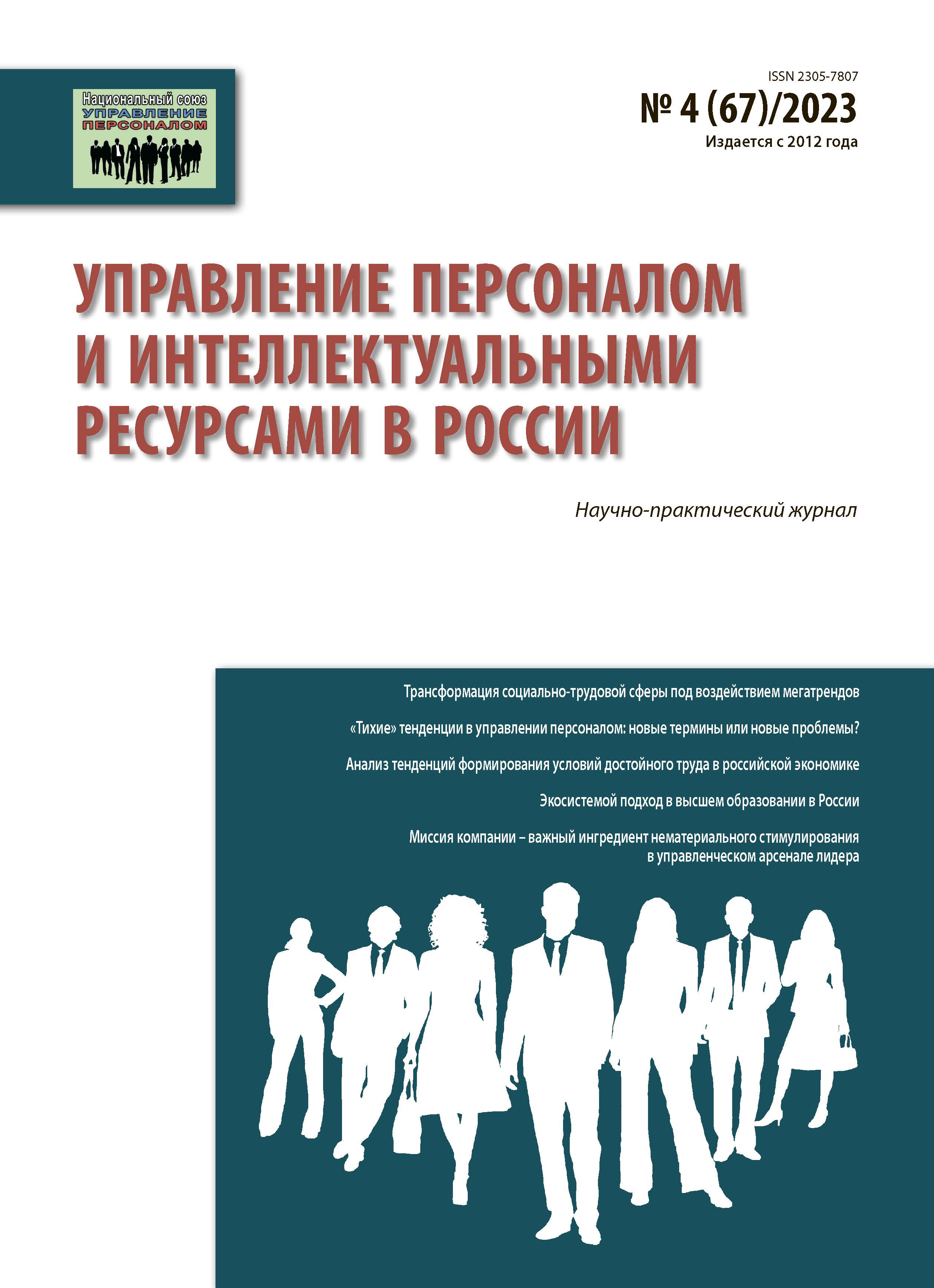Moskva, Russian Federation
Russian Federation
The article substantiates the relevance of the issues of motivation and stimulation of the activities of project team members, due to the high significance of motivation and involvement of project team members from the point of view of achieving the final results of project activities. The staff is one of the most important resources of the team, because only the presence of employees with the necessary professional and personal qualities, united by common values, will ensure effective teamwork to achieve the goals of the team. The article examines the specifics of the motivation of project team members, considers the possibilities and limitations of using well-known motivational theories to motivate the project team; systematizes typical mistakes of project managers when motivating team members and ways to overcome them; offers recommendations for increasing the motivation of project team members; it is shown that the complex and multidimensional motivation of project team members necessitates the use of a full range of directions and methods of stimulating their activities, including material (monetary and non-monetary) and non-material incentives.
team, project activity, project team, motivation, stimulation, motivational theories, involvement
1. Grigoryan, I.V. Hybrid and remote work: how to maintain the effectiveness of project teams. Upravlenie personalom i intellektual`ny`mi resursami v Rossii [Human Resources and Intellectual Resources Management in Russia]. 2022. Vol. 11. № 5. Pp. 61-65. (in Russian) DOI: https://doi.org/10.12737/2305-7807-2022-11-5-61-65; EDN: https://elibrary.ru/SNMVTU
2. Mitrofanova, E.A., Bulkina, N.V. Formirovanie i razvitie sistemy` stimulirovaniya trudovoj deyatel`nosti personala otrasli informacionny`x texnologij: teoriya i praktika: monografiya [Formation and development of a system for stimulating the labor activity of personnel in the information technology industry: theory and practice: monograph].- Moscow: Publishing House GUU, LLC "Cooper Book", 2016. - 231 p. ISBN 978-5-215-02814-8 EDN: https://elibrary.ru/GFYIVY
3. Mitrofanova E.A., Mitrofanova A.E. Features of personnel management in teams. Upravlenie personalom i intellektual`ny`mi resursami v Rossii [Human Resources and Intellectual Resources Management in Russia]. 2022. Vol. 11. № 4. Pp. 10-15. (in Russian) DOI: https://doi.org/10.12737/2305-7807-2022-11-4-10-15; EDN: https://elibrary.ru/PILHEX
4. Caltech. (2007). Developing and sustaining a high performance team. Retrieved November 12, 2007, URL: http://www.irc.caltech.edu/courses/ High_Performance_Teams.htm
5. Fisher, K. (2000). Leading self-directed work teams: A guide to developing new team leadership skills. New York: McGraw-Hill.
6. Flannes, S. W., & Levin, G. (2005). Essential people skills for project managers. Vienna, VA: Management Concepts, Inc.
7. Kerzner, H. (2003). Project management: A systems approach to planning, scheduling, and controlling. New York: John Wiley & Sons.
8. Nelson, B. (1994). 1001 ways to reward employees. New York: Workmen Publishing.
9. Peterson, T. M. (2007). Motivation: how to increase project team performance. Paper presented at PMI® Global Congress 2007-North America, Atlanta, GA. Newtown Square, PA: Project Management Institute. URL: https://www.pmi.org/learning/library/motivation-increase-project-team-performance-7234
10. Rad, P. F., & Levin, G. (2003). Achieving project management success using virtual teams. Boca Raton, FL: J. Ross Publishing, Inc.
11. Scholtes, P. R. (1998). The leader’s handbook: Making things happen, getting things done. New York: McGraw-Hill.
12. SEI_CMU. (2007). People capability maturity model (P-CMM). Retrieved November 12, 2007, URL: http://www.sei.cmu.edu/
13. Simpson, W. F., Gould, P. E., Hardy, P. J., & Lindahl, K. J. (1991). Essentials of December 2007 // Project Management Journal. DOI:https://doi.org/10.1002/pmj 67 supervision. Malvern, PA: Insurance Institute of America.







